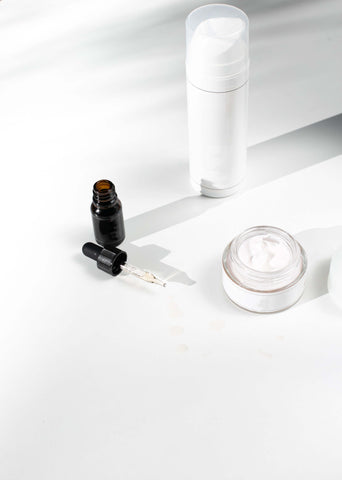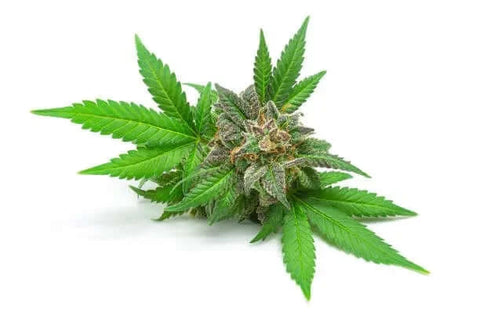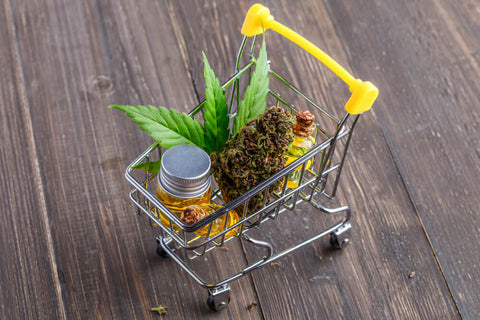In recent years, the popularity of cannabis has soared, primarily due to its medicinal and recreational potential. Within the cannabis plant, two compounds have gained significant attention: CBD (cannabidiol) and THC (delta-9-tetrahydrocannabinol). As Cannabis connoisseurs at The Gram Shop, we understand that navigating the world of cannabis can be overwhelming, especially for those who are not familiar with its intricacies. In this blog post, we aim to provide you with a comprehensive understanding of CBD and THC, highlighting their differences, benefits, and helping you determine which one might be suitable for you.
Understanding CBD
- What is CBD and how is it extracted?
- CBD is a natural compound found in cannabis plants that is known for its potential health benefits. To extract CBD, different methods are used. One common method is using pressurized carbon dioxide (CO2) to separate CBD from the plant material. Another method involves using certain solvents, like ethanol or olive oil, to extract CBD. These solvents help separate the CBD from the plant. Once extracted, CBD can be used in various products like oils, creams, and edibles. It's important to ensure that CBD products come from reputable sources and undergo third-party testing for quality and safety.
- CBD is a non-psychoactive compound meaning it does not produce the intoxicating or mind-altering effects typically associated with cannabis use.
- Non-psychoactive properties and potential benefits
- CBD offers potential benefits such as natural pain relief, reduced anxiety and stress, anti-inflammatory effects, neuroprotection, support for mental health, and skin health benefits. While more research is needed, CBD shows promise in improving overall well-being without the intoxicating effects of THC. It's advisable to consult with a healthcare professional before using CBD, especially if you have underlying health conditions or are taking medications.
- The legality of CBD products
- The legality of CBD products in the United States is complex. Hemp-derived CBD with less than 0.3% THC is generally legal under the federal Farm Bill. However, states have varying laws, and marijuana-derived CBD may have stricter regulations. The FDA has regulatory authority over CBD products, and while they have approved one medication, regulations for other CBD products are still being developed. It's important to be aware of state and federal laws, ensure compliance, and purchase CBD products from reputable sources.
 Exploring THC
Exploring THC
- What is THC and its psychoactive effects
- THC, or delta-9-tetrahydrocannabinol, is a chemical compound found in cannabis that is responsible for its psychoactive effects. When consumed, THC binds to cannabinoid receptors in the brain, resulting in the feeling of being "high" or intoxicated. It can induce relaxation, euphoria, altered perception of time, and heightened sensory experiences. THC is primarily found in marijuana and is responsible for the psychoactive properties associated with cannabis use. It's important to note that the psychoactive effects of THC may vary depending on the individual and the dosage consumed.
- Hemp-derived THC vs Marijuana-derived THC
- Hemp is defined as a cannabis plant that contains 0.3 percent or less THC, while marijuana is a cannabis plant that contains more than 0.3 percent THC
- Hemp-derived THC is legal under the federal definition of hemp. It is often used to produce CBD products and Delta-9 products.
- Medical uses and potential benefits
- T HC is primarily known for its ability to alleviate symptoms such as pain, nausea, and muscle spasms, making it useful in medical treatments such as chemotherapy-induced nausea and vomiting, chronic pain conditions, and multiple sclerosis. THC may also stimulate appetite, making it beneficial for individuals with appetite loss or eating disorders. However, it's important to note that THC's medical use and legality vary by jurisdiction, and its psychoactive effects should be considered when evaluating its potential benefits. Consult a healthcare professional for personalized advice.
- Legal considerations for THC products
- L egal considerations for THC products, including hemp-derived THC, vary depending on the jurisdiction. While hemp-derived THC with less than 0.3% THC is legal under the federal definition of hemp in the United States, state laws may differ. Cannabis-derived THC is subject to stricter regulations and may require medical authorization or adherence to recreational use laws. Age restrictions and product quality and safety regulations also apply. It's important to understand and comply with local laws regarding the possession, use, and distribution of THC products, regardless of the source.

Key Differences Between CBD and THC
- Psychoactive Effects: THC is the primary psychoactive compound in cannabis, meaning it produces the "high" or intoxicating effect. CBD, on the other hand, is non-psychoactive and does not induce a euphoric state.
- Legal Status: THC is classified as a controlled substance in many countries, while CBD legality varies. CBD derived from hemp (containing less than 0.3% THC) is legal under certain circumstances in many places, while THC may have stricter regulations.
- Medical Applications: Both CBD and THC have potential therapeutic benefits, but they differ in their applications. CBD is commonly used for its potential anti-inflammatory, analgesic, and anxiolytic properties. THC is often used for its pain-relieving, antiemetic, and appetite-stimulating effects.
- Side Effects: THC is more likely to cause side effects such as cognitive impairment, anxiety, and increased heart rate. CBD, on the other hand, generally has a good safety profile with few reported side effects.
- Drug Testing: THC can result in a positive drug test, as standard tests often detect THC or its metabolites. CBD typically does not result in a positive drug test unless it contains traces of THC above the testing threshold.
- Source: THC is present in higher concentrations in marijuana, while CBD can be derived from both marijuana and hemp plants. Hemp-derived CBD often contains lower levels of THC.
Choosing Between CBD and THC
- Factors to consider for health and wellness goals
- Effects: CBD is non-psychoactive and may provide potential benefits such as pain relief and relaxation. THC, being psychoactive, may have additional effects like euphoria and appetite stimulation.
- Legalities: CBD derived from hemp (with less than 0.3% THC) is legal in many places, while THC has varying legal statuses. Understanding local laws is crucial.
- Side Effects: THC can cause cognitive impairment and anxiety, while CBD has a generally favorable safety profile with minimal reported side effects.
- Drug Testing: THC may lead to positive drug tests, while CBD typically does not unless it contains higher levels of THC.
- Personal preferences and desired effects
- Some may prefer CBD for its non-psychoactive nature, minimal side effects, and potential benefits such as pain relief and relaxation. Others may seek the psychoactive effects of THC for conditions like appetite stimulation or mood enhancement. Understanding individual preferences, desired effects, and considering legalities and safety profiles are key factors when deciding between CBD and THC for personal health and wellness goals. Consulting with healthcare professionals can provide further guidance.

Exploring Product Options
The Gram Shop offers an extensive range of products to cater to your unique needs. Explore our product listings which feature oils, edibles, concentrates, and other choices.
Understanding the differences between CBD and THC is crucial when making an informed decision about which one is right for you. CBD offers a non-psychoactive experience and a wide range of potential therapeutic benefits. On the other hand, THC provides psychoactive effects that may be desirable for certain individuals seeking recreational or medicinal experiences. Consider your health goals, personal preferences, and local regulations when deciding which compound to incorporate into your wellness routine. Remember, it's always recommended to consult with a healthcare professional before using any cannabis-derived products.
By offering a diverse selection of CBD and THC products, we strive to empower our customers to make educated choices that align with their needs. Explore our shop to find high-quality products that cater to your specific requirements.

Your journey towards cannabis wellness starts here!
Disclaimer: This blog post is for informational purposes only and does not constitute medical or legal advice. Consult with a healthcare professional or legal expert before using CBD or THC products.
